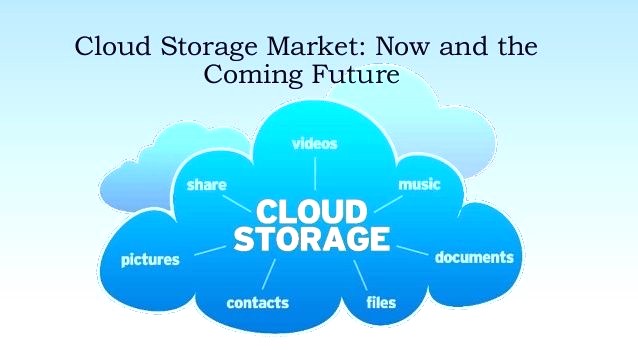Future of Cloud Storage: In today’s digital age, where data has become the lifeblood of businesses and individuals alike, the future of cloud storage is a topic of immense significance. As we venture further into the digital realm, the demand for efficient, secure, and scalable storage solutions is at an all-time high. In this article, we will delve deep into the exciting world of cloud storage, exploring the trends, innovations, and predictions that will redefine how we store and access data in the years to come.

The Current State of Cloud Storage
Before we leap into the future, let’s take a moment to understand the present landscape of cloud storage. As of now, cloud storage has already revolutionized the way we manage data. Companies and individuals can store their files, documents, photos, and videos on remote servers, accessible from anywhere with an internet connection. This convenience has led to the widespread adoption of cloud storage services like Dropbox, Google Drive, and Microsoft OneDrive.
The Future Trends in Cloud Storage
Now, let’s explore some of the most exciting trends that are shaping the future of cloud storage:
Edge Computing Integration:
The convergence of cloud storage and edge computing is set to transform data processing. By bringing computing power closer to the data source, this integration reduces latency and enhances real-time decision-making capabilities.
Quantum Computing Security:
With the rise of quantum computing, security concerns are escalating. Future cloud storage solutions must incorporate quantum-resistant encryption to protect sensitive data from emerging threats.
Hybrid and Multi-Cloud Strategies:
Businesses are increasingly adopting hybrid and multi-cloud approaches to diversify their storage options and ensure data redundancy. This trend is likely to continue, leading to more robust and versatile cloud storage ecosystems.
AI-Powered Data Management :
Artificial intelligence and machine learning will play a pivotal role in optimizing data management within cloud storage. Predictive analytics and automated data tiering will improve efficiency and cost-effectiveness.
Blockchain for Data Integrity:
Blockchain technology will be harnessed to enhance data integrity and transparency within cloud storage systems. This will be particularly crucial for industries with stringent regulatory requirements.
The Innovations on the Horizon :
The future of cloud storage is not limited to trends; it is also marked by groundbreaking innovations that promise to reshape the landscape:
DNA Data Storage:
Scientists are exploring the use of DNA molecules to store vast amounts of data in an incredibly compact and durable form. While in its infancy, this technology holds immense potential for the future.

Storage Class Memory (SCM):
SCM, also known as persistent memory, combines the speed of RAM with the persistence of traditional storage devices. In the future, SCM will bridge the gap between volatile and non-volatile storage.
Zero-Knowledge Encryption:
Zero-knowledge encryption ensures that only the data owner has access to their stored information. This enhanced privacy feature will become a standard in cloud storage security.
Decentralized Clouds:
Decentralized cloud platforms, based on blockchain and distributed ledger technology, will offer users greater control over their data and reduce reliance on centralized providers.
Bioauthentication:
Biometric authentication methods, such as fingerprint and retina scans, will become integral to accessing cloud storage, ensuring top-tier security.
Predictions for the Future:
The future of cloud storage is bright, with several exciting predictions on the horizon:
Petabyte-Scale Personal Clouds:
Individuals will have access to personal clouds capable of storing petabytes of data, empowering them to archive a lifetime of memories and information.
Real-Time Data Analysis:
Cloud storage will enable real-time data analysis, enabling businesses to make instant decisions based on up-to-the-minute information.
Sustainable Data Centers:
The industry will prioritize sustainability, with data centers designed to minimize energy consumption and reduce carbon footprints.
Global Data Accessibility:
Cloud storage will ensure that data is accessible from any corner of the world, bridging digital divides and fostering global collaboration.
Seamless Device Integration:
Cloud storage will seamlessly integrate with all devices, making data syncing and sharing effortless across smartphones, tablets, and computers.
FAQs:
Here are some frequently asked questions about the future of cloud storage, along with concise answers:
Q: What is the future of cloud storage?
A: The future of cloud storage holds exciting trends, such as edge computing, quantum computing security, and AI-powered data management, along with innovative technologies like DNA data storage and decentralized clouds.
Q: How will quantum computing impact cloud storage?
A: Quantum computing poses security challenges, but it also offers the potential for faster data processing and encryption breakthroughs.
Q: What are the benefits of hybrid and multi-cloud strategies?
A: Hybrid and multi-cloud strategies provide data redundancy, flexibility, and the ability to choose the best cloud services for specific needs.
Q: What role will AI play in cloud storage?
A: AI will optimize data management through predictive analytics, automated data tiering, and intelligent insights.
Q: How can blockchain enhance data integrity in cloud storage?
A: Blockchain ensures data integrity by providing an immutable ledger, making data tampering virtually impossible.
Q: What is DNA data storage, and how does it work?
A: DNA data storage uses DNA molecules to encode and store data. It offers high-density storage with remarkable longevity.
Q: What is Storage Class Memory (SCM)?
A: SCM combines the speed of RAM with the persistence of traditional storage devices, offering fast and durable data storage.
Q: How does zero-knowledge encryption work in cloud storage?
A: Zero-knowledge encryption ensures that only the data owner can access their data, as the cloud provider has no knowledge of the encryption keys.
Q: What are decentralized clouds, and why are they important?
A: Decentralized clouds are built on blockchain technology and offer greater data control and privacy by eliminating central authorities.
Q: How will biometric authentication enhance cloud storage security?
A: Biometric authentication methods, like fingerprint and retina scans, add an extra layer of security by verifying a user’s unique biological traits.
Conclusion
The future of cloud storage is a captivating journey into a world of limitless possibilities. With evolving trends, groundbreaking innovations, and exciting predictions, cloud storage is poised to become an even more integral part of our digital lives. As we embrace the advancements on the horizon.
